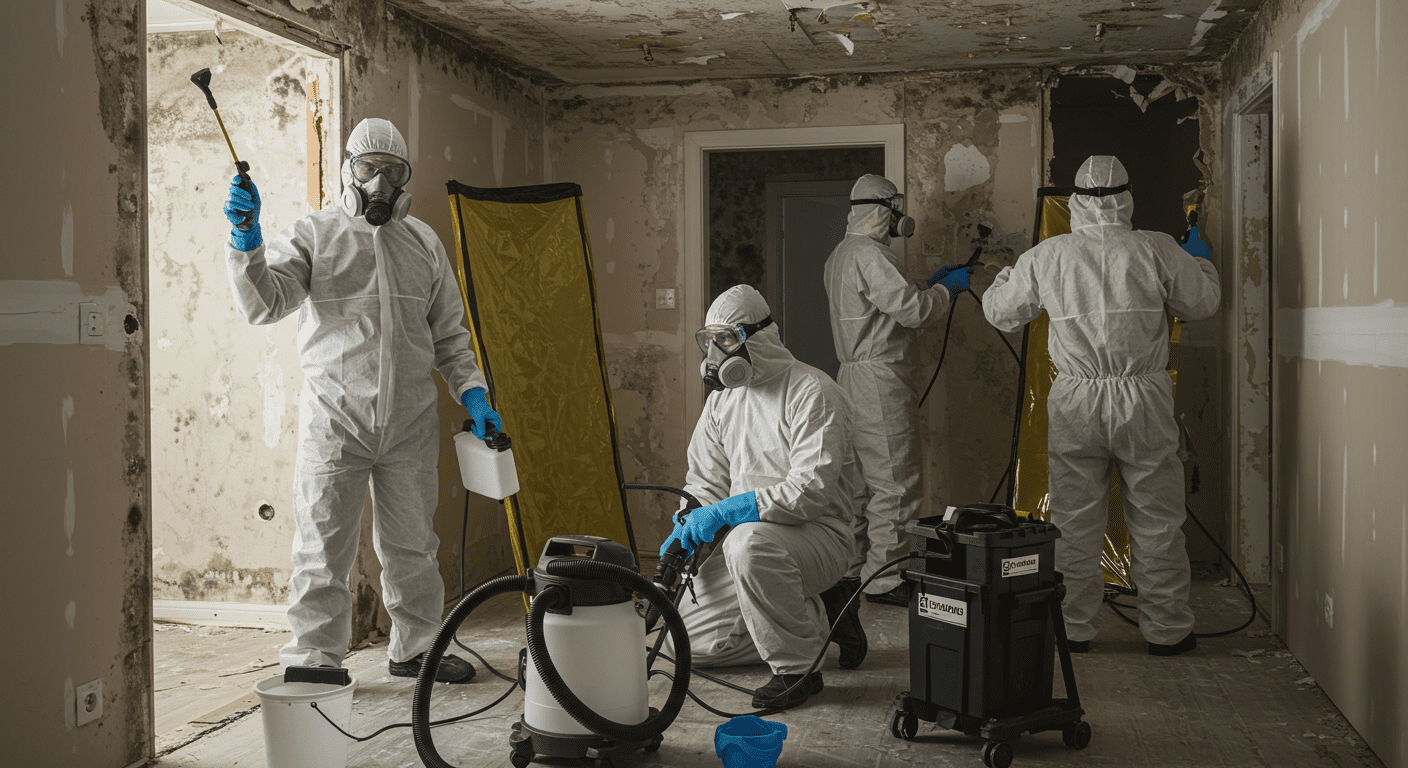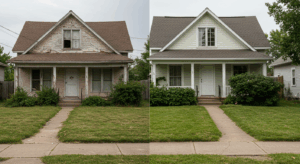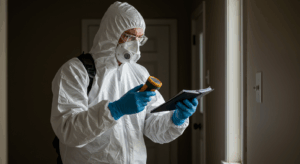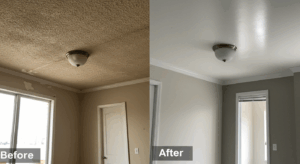Purchasing a home is a significant investment, but what happens when the property you’re eyeing has mold and water damage? While these issues can be daunting, they don’t necessarily mean you should walk away. In Mishawaka, IN, understanding the risks, solutions, and expert tips for handling mold and water damage can help you make an informed decision. This guide will walk you through everything you need to know.
Understanding Mold and Water Damage
What Causes Mold and Water Damage?
Mold and water damage often go hand in hand, as mold thrives in damp environments. Common causes include plumbing leaks, roof damage, poor ventilation, and flooding. In Mishawaka, IN, the humid climate can exacerbate these issues, making it essential to address them promptly. Mold spores can spread quickly, damaging walls, floors, and ceilings while posing health risks.
Signs of Mold and Water Damage in Homes
Identifying mold and water damage early is crucial. Look for visible signs such as discoloration on walls, ceilings, or floors, and check for a musty odor. Water stains, peeling paint, and warped wood are also red flags. In some cases, mold may not be visible but could be hiding behind walls or under carpets. A professional inspection can help uncover hidden issues.
Risks Associated with Buying a Home with Mold and Water Damage
Health Risks of Mold Exposure
Mold exposure can lead to various health problems, especially for individuals with allergies, asthma, or weakened immune systems. Symptoms include respiratory issues, skin irritation, and headaches. Prolonged exposure can exacerbate these conditions, making it essential to address mold problems before moving in. For more on handling mold safely, check out this guide.
Structural Risks and Financial Implications
Beyond health concerns, mold and water damage can compromise a home’s structural integrity. Rotting wood, weakened foundations, and damaged drywall can lead to costly repairs. Additionally, these issues can lower the property’s value, making it harder to resell. Buyers should factor in repair costs and negotiate accordingly to avoid financial pitfalls.
How to Assess a Property with Mold and Water Damage
Importance of Home Inspections
A thorough home inspection is non-negotiable when buying a property with mold and water damage. Professional inspectors can identify the extent of the damage and provide an estimate for repairs. They use specialized tools to detect moisture levels and hidden mold, ensuring no issue goes unnoticed. Learn about expert mold remediation services in Mishawaka here.
Evaluating Repair Costs and Negotiating with Sellers
Once the inspection is complete, you’ll have a clearer picture of the repair costs. Use this information to negotiate with the seller. In some cases, sellers may agree to cover remediation expenses or lower the asking price. Be sure to consult with contractors to get accurate repair estimates and factor these into your budget.
Remediation and Prevention Strategies
Mold Remediation: What to Expect
Mold remediation involves removing mold and addressing the source of moisture to prevent recurrence. Professionals use specialized equipment to clean affected areas and may need to replace damaged materials like drywall or insulation. The process can take several days, depending on the extent of the damage. For a detailed look at mold remediation, visit this resource.
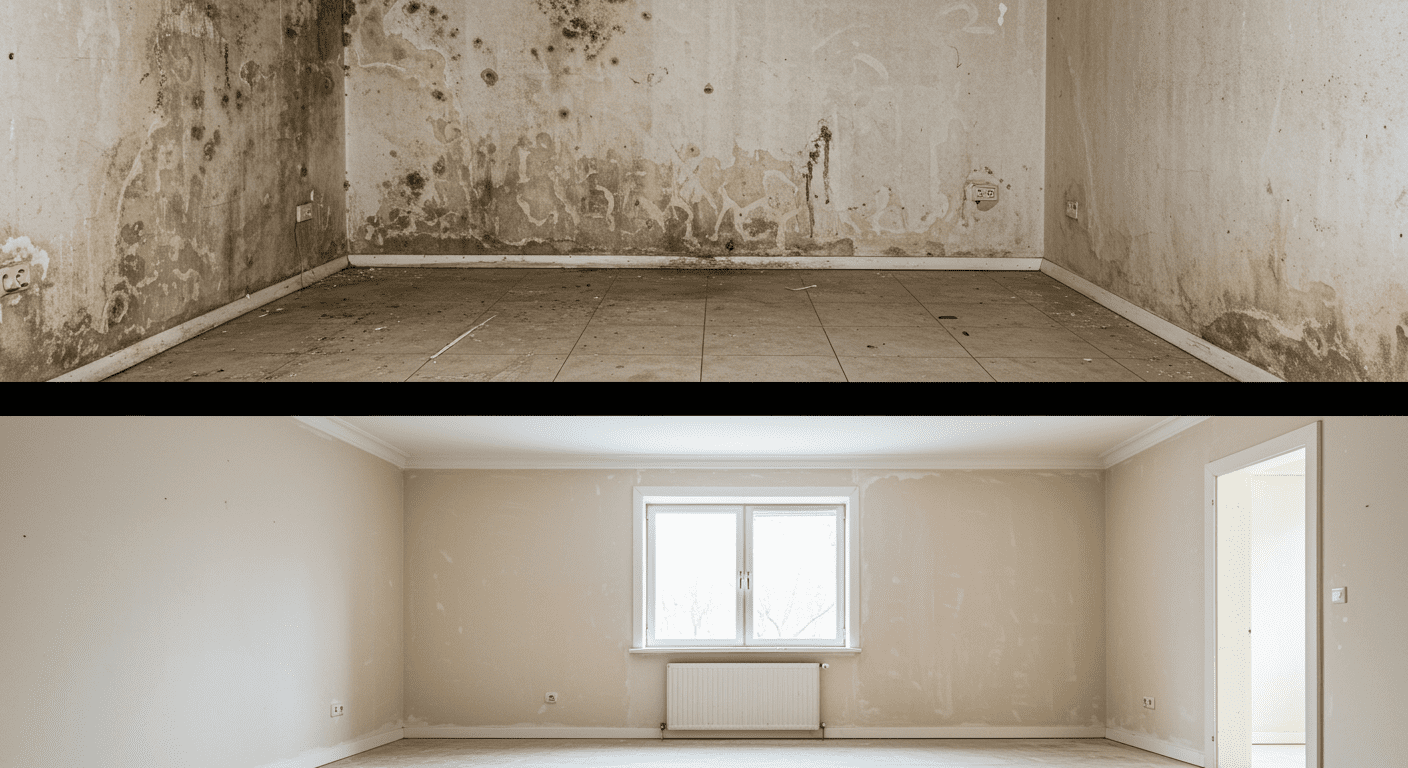
Preventing Future Mold and Water Damage
Prevention is key to maintaining a healthy home. Ensure proper ventilation in bathrooms and kitchens, fix leaks promptly, and use dehumidifiers to control indoor humidity levels. Regular maintenance, such as cleaning gutters and inspecting the roof, can also prevent water damage. For more prevention tips, explore this guide.
Buying a house with mold and water damage in Mishawaka, IN, requires careful consideration and planning. By understanding the risks, conducting thorough inspections, and investing in professional remediation, you can turn a problematic property into your dream home. With the right approach, you can navigate these challenges and make a sound investment.

